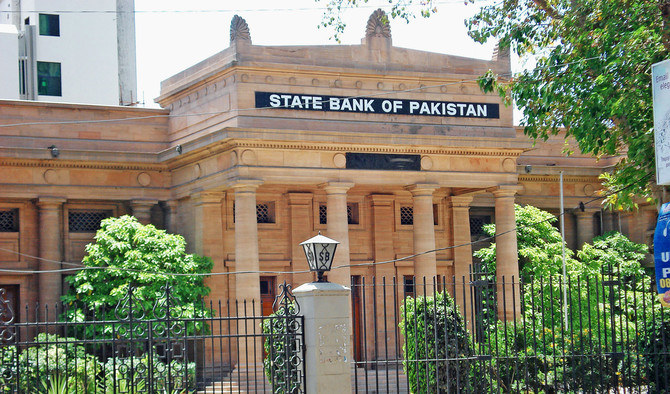KARACHI: Pakistan is quickly progressing in the digitalization of its tax collection and of the National Single Window for foreign trade, customs and central bank officials said on Thursday.
“From January 2020, the State Bank of Pakistan will bear the digital payment fee or transaction charges which were being charged from the customers. There will be no deduction made from customers account”, Qader Bakhsh, director of finance at the State Bank of Pakistan (SBP), told Arab News and added that the government will get the revenue directly in its treasury account.
Currently, the transaction fee for tax payment is Rs10 for up to Rs100,000, Rs20 for Rs100,000 to Rs1 million and Rs50 for above Rs1 million.
Pakistan is towing two tax payment systems, focusing on digital payments to achieve full automation of tax collection through Alternative Delivery Channels (ADCs) and Over The Counter (OTC) options.
The online system launched in 2018 by the Federal Board of Revenue (FBR) in collaboration with the SBP and 1Link, facilitates payment of federal taxes, customs duty and federal excise through ADCs.
“Online banking is now a universal banking concept. Now you can go to any bank, any branch and ADCs are also provided that include Internet banking, ATMs, corporate banking portal and OTCs,” Bakhsh said after a seminar organized by the State Bank of Pakistan in Karachi on Thursday.
“(Tax) payment has increased 62 times. In the first 10 months only Rs40 billion were collected and during the next 10 months Rs300 billion were collected (through the online payment system),” he said.
Earlier, Pakistanis had to pay their taxes at the central bank and National Bank of Pakistan (NBP) branches manually. Now, they can pay at 15,000 bank offices, around 14,000 ATMs, and online.
Meanwhile, works on the National Single Window are progressing swiftly.
“Pakistan Customs is playing a leading role for the National Single Window project. Progress on the project has been rapid,” Customs Collector Wajid Ali said during the seminar.
The project is a quantum leap from the current silo and paper based management of Pakistan’s foreign trade that involves 44 different government departments regulating imports, exports and transit trade.
“All stakeholders, importers, and exporters and transit trade will be linked with an electronic portal for submission of trade documents through the single window,” Ali noted, adding that payment will be electronic too. He did not disclose when the single window will be launched.
The project will not only reduce the costs of doing business, but also corruption as they will minimize human interference. The measures already introduced by the customs “led the country to jump by 17 positions in the World Bank’s ease of doing business ranking in trading across borders,” Ali added.
















